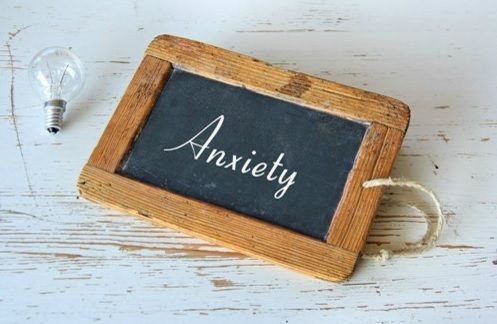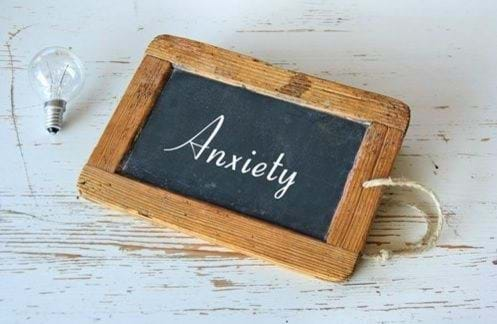Dealing with Anxiety and University
9 February 2017
If you feel you're under pressure since starting university or you're becoming anxious about starting university then don't worry, we're here to help you and we've teamed up with AnxietyUK who are always on hand to support you too!

When you don’t know how not to think and all you want to do is understand why you’re feeling this way when you actually don’t want to… An estimated 5% of the UK population are affected by anxiety, which tends to be slightly more women than men, and the condition is more common in people from the ages of 35 to 59. However, there has been a rising number of younger people over the last few years dropping out of university due to suffering with anxiety. Here’s some information on the mental disorder and how you can cope with it or help someone you know who has it.
What is anxiety?
It’s normal to feel anxious, we’re human, it’s a natural reaction for everyone at different points in their lives, and it affects different people in different ways. Younger people may feel it more when coming to uni, most of the time they’re going to be leaving home for the first time to embark on their journey of life, it’s the unknown; feeling nervous, worried, or uneasy, especially if they’re moving miles away from their home town. But for some people that feeling of butterflies in their stomach can lead to full blown panic attacks and will often stop them from experiencing things in life due to this uncertainty that they feel. Having a panic attack is basically the combination of the emotional and the physical responses we might feel when we’re worried about something, like the whirlwind of starting university, moving away and the thought of having to make new friends, and this can certainly cause a tidal wave of emotions triggering anxiety.

These are some of the many symptoms that come with anxiety:
- Stressed and/or feeling nervous
- Palpitations and/or concentration difficulties
- Always thinking “what if” or on the lookout for danger
- Get flustered or can’t easily relax
It might have even started before the thoughts of university even came about, it might have been when taking exams, or at a job interview etc. the people who suffer with it, know that it’s normal to be nervous but when anxiety kicks in, it’s more than that. It might have started the closer university got, the thought of having to make deadlines, asking yourself questions like, ‘have I chosen the right course?’ and ‘what if I fail?’ These feelings of uncertainty often aren’t something that can’t necessarily be controlled without seeking help. The problem with seeking help is the thought of being judged, that a doctor is going to think that it’s something minor or something that they think can be dealt with easily, but that isn’t the case. Medical advisors know that anxiety is a very serious mental disorder and it’s having the courage to go to these people and say “I need your help.”
What causes anxiety?
Below are just a few examples of what could trigger anxiety:
- Tough life events or stressful times in life
- Thought processes
- Environmental or passed down from other anxious people around you
- Lack of confidence
There are a number of reasons or “events” that can cause anxiety, some of which people can actually develop throughout their lives. If someone has experienced bullying at school or is currently going through a family crisis, along with worrying about failing exams and how they’re going to cope with being away from family and friends, these can all build up to someone becoming more and more anxious in their everyday life. It could even be a thought process, meaning someone who is naturally anxious may be more negative in their day to day activities, thinking “what if that was to happen” or they’ll think of the worst case scenario, assuming this will prevent something bad happening to them, when really this will prolong the anxious feeling because it’ll cause them to not be able to relax. There could also be biological ties to anxiety, for example, if parents or surrounding people are anxious and that’s the environment someone has been brought up in then that person would be assumed to become more of an anxious person than someone who hadn’t. It may even just be a lack of confidence someone is experiencing, where they feel they are constantly being judged by the outside world, and it’s just continued to build up around them over time. Every individual will have a unique cause for their anxiety.
How do I deal with panic attacks?
If you experience a panic attack or if you see someone having one, there are a few things that you can do to help them or try and get yourself under control:
- Focus: Look for something that isn’t threatening whilst you gather your thoughts, like trees in a park or watch a clock tick by.
- Breathe: Try and calm your breathing. Breathe in through your nose for 3 seconds, hold for 2 seconds and breathe out through your mouth for 3 seconds and repeat until you feel calmer.
- Face your fear: Think about what it is that’s making you feel the fear and face it, tell yourself it’s just a thought and that it won’t affect you, it isn’t real and that it’ll pass in a few minutes.
- Positive thinking: When having a panic attack, it’s usually negative thoughts that are causing it, so trying to focus on something positive can help; picture a place that you find safe and peaceful to ease the panic. This can be the most challenging part of all, thinking negatively can become an automatic trait, but if you practice doing this over time it will help to change any negative thought processes that occur in the future.
- Don’t fight it: You may be more conscious or embarrassed about having an attack in public or in a lecture but if you fight it, you can more often than not make it worse. Take yourself away if you have to, control your breathing and reassure yourself that you’re ok until it passes.

As mentioned above, anxiety affects people in different ways and many people will react to a panic attack differently too, following the steps above and reassuring yourself or that person that everything is going to be fine and that the thoughts that have caused this attack aren’t real will help it pass.
How do I prevent panic attacks?
Doing things every day to maintain a healthy lifestyle can help improve and manage your anxiety levels. Like everything in life, it’s about moderation and learning to love yourself.
Try some of these activities going forward and see if it helps your anxiety improve:
- Relaxation: Whether this is treating yourself to a massage a couple of times a month or aromatherapy, you could learn yoga or practice it more often if you already know some poses or go to a class with your friends. You could try relaxation and breathing techniques which will help you when dealing with future panic attacks that you can do in the comfort of your own room.
- Exercise: Regular exercise is renowned for being good for everyone but for someone who has anxiety issues the release of the feel good hormone Serotonin will better their mood and reduce the anxious feelings they get in the long run. At Derwent Students we have our own gyms in some of our sites across the UK which are usually open 24/7 and for those that don’t there are gyms close by, some of which offer a discount to our students. It is recommended that 2hrs 30mins of intense aerobic exercise should be done every week, along with 2 days of muscle strengthening exercises for each muscle group. We also arrange fitness classes in some of our properties so be sure to ask for more information at reception.
- Diet: Eating a clean diet is key for leading a healthy lifestyle and having unstable blood sugar can contribute to the symptoms of having panic attacks. Sugary foods and drinks should be avoided and eating regularly will help stabilise blood sugar levels. It is also advised that caffeine, alcohol and smoking are all avoided too, as these can also contribute to having panic attacks. We also arrange cooking evenings in some of our properties that have theatre kitchens and currently we have an offer on “Grub for Students” where you get 50% off of your 1st and 4th fruit and veg boxes and a FREE surprise with your first delivery when you enter ‘DERWENT’ at the checkout.
Where can I get help with my anxiety?
If you feel that you need help or just want some advice on how to cope with anxiety and/or panic attacks, so you can live your life without worrying and get to experience everything at university you should, then please contact AnxietyUK who we have teamed up with to support everyone or ourselves, below. We will help by pointing you in the right direction and reassuring you that you’re in the safest possible places when you come to live with us at Derwent Students.
o Theyoffer student membership packages for those who feel they might need additional support when starting university for a donation
o They also have a booklet ‘The Student Guide to Understanding Anxiety’ which you can download for £2.99
If you’ve suffered with anxiety in the past but have learnt to deal with it over time and would like to share your stories and experiences, then please get in touch so we can work together to help others.





